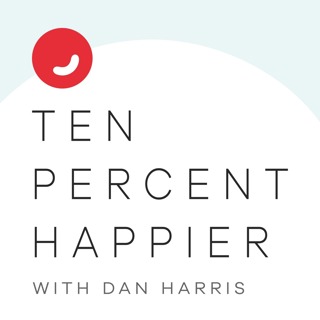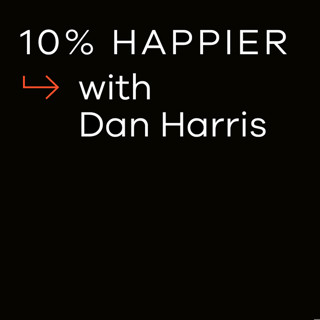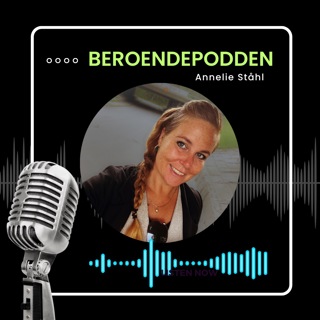
Buddhist Lessons on Anxiety | Leslie Booker
Taming Anxiety Series - Episode 4: Welcome to the final episode in our Taming Anxiety Series! Today's guest, Leslie Booker – who goes by "Booker" – is one of America’s leading dharma teachers. She began sharing the practice with vulnerable populations back in 2005 and is a graduate of three different training programs at Spirit Rock, including their four-year Retreat Teacher Training Program. In this conversation, Booker will make the case that one of the most important, even life-saving, tools when it comes to dealing with anxiety is our ability to connect with our communities. She also brings our attention to yet another Buddhist list – the “three characteristics.” And she explains how bringing awareness to our bodies can help settle us in our most anxious moments. This, I should say, is something she’s worked on with me personally. If you’d like to see that, you can actually do so, because we filmed it as part of our new Taming Anxiety Challenge, a ten-day meditation challenge which begins today over in the Ten Percent Happier app. Booker is one of the core teachers in the Taming Anxiety Challenge, which features short videos and guided meditations about how to live with anxiety more intentionally. In the app, you’ll see her share strategies with me – and you – for putting into practice everything we talk about on the podcast today — including ways to normalize the experience of anxiety in your community. In fact, by joining the Taming Anxiety Challenge, you'll be part of a community of thousands of meditators learning to cope with anxiety. You can even invite your friends or family to join you in the Challenge – for free! You'll get a notification each time they meditate, so you can be accountable to and supportive of each other. You can join the Taming Anxiety Challenge by downloading the Ten Percent Happier app: https://10percenthappier.app.link/install. You should be prompted to join the Challenge after registering your account. If you've already downloaded the app, just open it up or visit this link to join: https://10percenthappier.app.link/TamingAnxietyChallenge. Full Shownotes: https://www.tenpercent.com/podcast-episode/leslie-booker-358
21 Juni 20211h 10min

Strategies for Social Anxiety | Ellen Hendriksen
Taming Anxiety Series - Episode 3: As we move into summer and more and more vaccines go into arms, your town or city (or state or country) may soon be opening back up, if it hasn’t already. Some of us are ecstatic. A lot of us are anxious. (And by the way, those are not mutually exclusive. It’s totally possible to be both.) If the thought of large crowds or even small dinner parties makes your palms sweat, don’t worry. You’re not alone. (And if this was true for you even before the pandemic, you’re not alone there, either.) Our guest today is here to help. Ellen Hendriksen is a clinical psychologist who specializes in anxiety and social anxiety and serves on the faculty at Boston University's Center for Anxiety and Related Disorders. She is the author of How to Be Yourself: Quiet Your Inner Critic and Rise Above Social Anxiety. In today’s episode she explains how to increase your tolerance for uncertainty; how and why social anxiety has gotten worse since the start of the pandemic; and, what you can do to face your own anxiety around social interactions, especially if you’re in a place that is reopening. She’ll also answer some questions from you, our listeners. In addition to this series on the podcast, we are launching a free Taming Anxiety Meditation Challenge in the Ten Percent Happier app, to help you practice what you’re learning. In this brand-new ten-day meditation challenge, we’ll be pairing a leading anxiety expert and a top-notch meditation teacher together to help you practice what we’re talking about on the show. The free Taming Anxiety Challenge begins on Monday, June 21, and will run for ten days. Each day, you'll receive a video and you'll complete a short meditation. You'll also receive daily reminders to help keep you on track, and you can even invite your friends to join you. Join the Taming Anxiety Challenge by downloading the Ten Percent Happier app: https://10percenthappier.app.link/install. You should be prompted to join the Challenge after registering your account. If you've already downloaded the app, just open it up or visit this link to join: https://10percenthappier.app.link/TamingAnxietyChallenge. Full Shownotes: https://www.tenpercent.com/podcast-episode/ellen-hendriksen-357
18 Juni 20211h 10min

Anxiety, Explained | Luana Marques
Taming Anxiety Series - Episode 2: Anxiety is very common -- but also commonly misunderstood. So today we’re doing a show that you might think of as: Everything You Wanted to Know About Anxiety (But Were Afraid to Ask). This is the second episode in a four-part series we’re calling “Taming Anxiety.” (By the way, if you missed the first episode, with pop-star/Broadway star/sitcom-star Sara Bareilles, I strongly recommend checking that out.) Today, though, we are diving into the science of anxiety with Dr. Luana Marques. Luana is an Associate Professor of Psychiatry at Harvard Medical School, President of the Anxiety and Depression Association of America, and the author of Almost Anxious: Is My (or My Loved One’s) Worry or Distress a Problem? You might also recognize her from this show, because she was also our very first guest on the topic of Covid, way back in March of 2020, in an episode titled “How to Handle Coronavirus Anxiety.” In this episode, Luana will explain, from a scientific perspective, what anxiety actually is; why it isn’t actually a problem in and of itself – instead, it’s our relationship to it that’s (often) a problem; what the "TEB Cycle" is, and how to work with it; the short-term benefits of avoiding things that cause us anxiety – and the long-term consequences of that avoidance; and how to handle anxiety-induced phobias, including, in my case, a pronounced fear of elevators. Plus, we’ll take some voicemails that you, our listeners, have submitted. You can also learn how to actually practice everything we'll talk about in today’s episode by participating in our free Taming Anxiety Challenge over in the Ten Percent Happier app, which kicks off next Monday, June 21. Join the Taming Anxiety Challenge by downloading the Ten Percent Happier app: https://10percenthappier.app.link/install. You will be prompted to join the Challenge after registering your account. If you've already downloaded the app, just open it up or visit this link to join: https://10percenthappier.app.link/TamingAnxietyChallenge. Full Shownotes: https://www.tenpercent.com/podcast-episode/luana-marques-356
16 Juni 20211h 2min

Sara Bareilles: Anxiety, Anger, and Art
Taming Anxiety Series - Episode 1: Today is a big day here on the podcast, both because we have a fantastic new episode, and because this episode is actually kicking off a series we have been wanting to produce for a long time, called “Taming Anxiety.” Anxiety is a massive issue in our society. Even before the pandemic, it was on the rise. Now, the situation is even worse. Chances are it has afflicted you or someone you love at some point, on some level: maybe you’ve received an actual diagnosis, like generalized anxiety disorder, or maybe you’re prone to symptoms closer to panic, or perhaps you’re just susceptible to a bit too much garden-variety worrying. Maybe your kids are increasingly anxious. Or maybe, like me, you’ve got a few different items on the menu–some low-level professional freakouts here, some panic attacks in elevators (or on live TV) over there… Anyway, the bad news is that anxiety is unlikely to disappear overnight. But the good news is that you can change your relationship to it. Hence this two week series we’re launching today. We’ve got two episodes with scientists and one episode with a meditation expert on deck to help you learn to tame your anxiety. And we’ve even got a free meditation challenge over in the Ten Percent Happier app to help you bring these lessons into your practice. But before we get to that, let me introduce today’s guest. We’re kicking things off with a personal story. Sara Bareilles is a fearsome polymath: a singer, songwriter, composer, actor… the list goes on. She earned Tony and Grammy Award nominations for the Broadway musical Waitress, she’s got a new album out called Amidst the Chaos: Live from the Hollywood Bowl, and she stars in the new Tina Fey-produced series Girls5eva, which is streaming right now on Peacock. Behind all this artistic and professional success is a meditator who is deliberately open and public about her struggles with anxiety and depression. In this conversation, she talks about: her history of anxiety and depression; the relationship between suffering and art, and whether meditation might defang someone’s creativity; how she works with anger; her relationship to social media; and we get an intimate glimpse into the back-stories behind some of her hit songs. This is the first episode in our new “Taming Anxiety” series, and there will be an accompanying meditation challenge over in the Ten Percent Happier app. It’s also called “Taming Anxiety,” and it launches next week, on Monday, June 21st. The idea here is that you will be able to use the challenge to integrate everything you’ve learned in the podcast series into your neurons. Join the Taming Anxiety Challenge by downloading the Ten Percent Happier app: https://10percenthappier.app.link/install. You should be prompted to join the Challenge after registering your account. If you've already downloaded the app, just open it up or visit this link to join: https://10percenthappier.app.link/TamingAnxietyChallenge. Full Shownotes: https://www.tenpercent.com/podcast-episode/sara-bareilles-355
14 Juni 20211h

The Surprising Upsides of Self-Deception | Shankar Vedantam
Anyone with a passing familiarity with Buddhism will know that “delusion” is rarely, if ever, mentioned in a positive way. In fact, the Buddha included delusion (aka: confusion about the way things really are) on his list of “the three poisons.” The whole point of meditation, per the Buddha, is to uproot delusion -- along with greed and hatred. Only then can you be enlightened. My guest today is here to valiantly make the case that delusion -- or self-deception -- has an upside. Many upsides, in fact. While he concedes that self-deception can, of course, be massively harmful, he argues that it also plays a vital role in our success and wellbeing, and that it holds together friendships, marriages, and nations. Understanding this, he says, can make you happier, more effective, and -- crucially -- more empathetic with people with whom you disagree. Shankar Vedantam is the host of the popular podcast and radio show Hidden Brain. His new book is called Useful Delusions: The Power and Paradox of the Self-Deceiving Brain. In this conversation, we talk about: the many ways our brains filter and alter our perception of reality; why we evolved for a robust capacity to lie to ourselves; and how his research on delusions has colored his view of the chaos and confusion of our modern world. Are you excited about the upcoming Taming Anxiety Challenge? If so, you can download the Ten Percent Happier app today to get ready: https://10percenthappier.app.link/install Full Shownotes: https://www.tenpercent.com/podcast-episode/shankar-vedantam-354
9 Juni 20211h 10min

Chris Bosh: Making Your Inner Voice Your Ally
One of the more surprising lessons I’ve learned as an ambitious person is that perhaps the best recipe for success is... keeping your ego in check. For a long time, I subconsciously believed that you needed to be unremittingly selfish to “make it.” But after life delivered me repeated beat-downs, I finally got the message: sometimes what’s best for me is to focus on greater good -- on the team. It’s enlightened self-interest. (For the record, I am not perfect at this.) My guest today has also learned this lesson the hard way. Chris Bosh is an 11-time NBA All-Star, an Olympic gold medalist, and he was just recently inducted into the Basketball Hall of Fame. He says his proudest moments as a player came from defeating his own ego, and you’ll hear him explain how he learned to do this. You’ll also hear him talk about something that anyone who’s ever been born needs to learn how to do (given that we live in a universe where impermanence is a nonnegotiable fact): letting go. In 2016, Chris nearly died from a blood clotting illness that sidelined him. He spent the next couple of years trying to make his way back to the NBA before retiring in 2019. He’s just written a new book, in which he tells his story and compiles some hard-won wisdom. It’s called Letters to a Young Athlete. But you don’t have to be an athlete to benefit; it’s really for anyone who’s interested in excellence. In this conversation, Chris and I talk about the difficult process of letting go of something you love; the in’s and out’s of his journey with his own ego, both during and after his playing career; how to set aside the inner chatter in your mind in order to be in the present moment; and how to play every game–whatever that might mean to you–like it’s your last. Before we dive in, I also want to let you know about a special series of episodes we’ll be launching next week here on the podcast. It’s called “Taming Anxiety.” It will feature interviews with top anxiety researchers and a dynamite meditation teacher. And, as is our wont here in TPH-land, we’ll be launching a free companion meditation challenge on the Ten Percent Happier app to help you put everything you learn in the podcast series into practice in your daily life -- to integrate it into your neurons, as I like to say. Get ready to join the free challenge on June 21 by downloading the Ten Percent Happier app today: https://10percenthappier.app.link/install Full Shownotes: https://www.tenpercent.com/podcast-episode/chris-bosh-353
7 Juni 202154min

Dan Tells A Meditative Story
In this episode from the excellent podcast Meditative Story, recorded a couple of years ago, Dan shares a candid look at his attempts to connect more with his son, Alexander, on their first father-son trip. Meditative Story combines human stories with meditation prompts embedded into the storylines — all surrounded by breathtaking music. You can learn more about it here: https://meditativestory.com/, and listen here: https://podcasts.apple.com/us/podcast/id1472106563.
4 Juni 202131min

Why You’re Burning Out -- And How to Fix It | Leah Weiss
Covid appears to have brought on a spike in burnout, especially among women, millions of whom have exited the workplace since the pandemic began. So what is burnout, exactly? How do you know if you qualify? How do you fix it? And can meditation help? That’s what we’re tackling today with Leah Weiss, who despite being a longtime meditator herself, has experienced burnout firsthand. Leah is a researcher and author. She was a founding faculty member of the Compassion Institute at Stanford University, and she’s the co-founder of Skylyte - a company that specializes in using the latest science to help organizations prevent burnout. She’s written two books. The most relevant for our purposes is called: How We Work: Live Your Purpose, Reclaim Your Sanity, and Embrace the Daily Grind. In this conversation, we cover: the differences between anxiety, depression, and burnout; how to detect burnout; how burnout runs along a spectrum, and is a “full body experience;” why meditation can help but also make some people more susceptible to burnout; what can be done to protect women in the workplace; and her argument that burnout isn’t just a personal problem, but also a systemic one. Also: If you don't already have the Ten Percent Happier app, you can download it for free here: https://www.tenpercent.com/?_branch_match_id=888540266380716858, or wherever you get your apps. Full Shownotes: https://www.tenpercent.com/podcast-episode/leah-weiss-352
2 Juni 20211h 8min





















